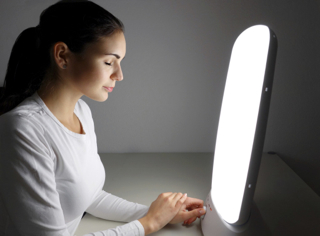What Is Dementia?
Simply put, dementia is a group of thinking and social symptoms that interferes with normal daily functioning. However, dementia is so much more than a simplified, condensed, one sentence long description. Dementia is chronic and persistent and affects not only the mental process of the victim of the disease, but also anyone else involved. Dementia is a general term and there are many different forms, levels, and stages. For example, Alzheimer’s is the most common form of dementia. This is a condition that most people know about. Dementia is an overall term that can describe a long list of symptoms, all of which are more than difficult to deal with.
The Symptoms…
The symptoms for dementia greatly vary but in order to have the condition, the patient must be significantly impaired by at least two of these specific core mental functions…
- Memory
- Communication / Language
- Ability to focus and pay attention
- Reasoning / Judgement
- Visual perception
- Some of the symptoms for dementia that are not one of the core mental functions are…
- Difficulty handling complex tasks
- Difficulty with planning and organizing
- Confusion
- Disorientation
- Personality changes
- Depression
- Insomnia
- Anxiety
- Inappropriate behavior
- Paranoia
- Agitation
- Hallucinations
Due to the fact that dementia is a general term, the symptoms do vary greatly and depending on the exact form, there are different ways patients live and seek treatment.
The Cause…
Dementia is a result of damage to the nerve cells in the brain. This can occur for many different reasons. Depending on the part of the brain that is affected by this nerve damage, people are affected differently. The different forms of dementia are grouped by what they have in common as well as which part of the brain they are located in or affecting. Some forms of dementia are progressive, meaning that they get worse and worse over time, and some are brought about by medications, deficiencies, etc., and can be treated.
Progressive Dementias:
- Alzheimer’s disease
- Vascular dementia
- Lewy body dementia
- Frontotemporal dementia
- Mixed dementia
Disorders Linked To Dementia:
- Huntington’s disease
- Traumatic brain injury
- Creutzfeldt-Jakob disease
- Parkinson’s disease
Dementia Conditions That Are Reversible:
- Infections
- Immune disorders
- Metabolic problems
- Endocrine abnormalities
- Nutritional deficiencies
- Medication reactions
- Subdural hematomas
- Poisoning
- Brain tumors
- Anoxia
- Normal pressure hydrocephalus
Light Therapy & Dementia!
Dementia can greatly affect it’s patients sleeping habits and increase their agitation levels. This is the last thing that someone suffering with a life changing condition needs to deal with. That’s why we’re going to talk about light therapy!
Ecumen, which is a senior housing and services provider, conducted a pilot study and came to the conclusion that light therapy can help dementia victims. They found that light therapy can improve nighttime sleeping and reduce agitation levels in their patients that have dementia.
In the study, almost 60% of the participants had fewer episodes of sleep disturbance and 32% had fewer behavioral episodes compared to patients that didn’t partake in the experiment. It’s important to note that antipsychotic medication usage decreased by 11%.
For the experiment, bright light tables were placed in dementia patient’s rooms as well as common rooms where they spend time for group activities. The residents were exposed to the bright lights for about 30 minutes each day during Daylight Savings Time and 1 hour after Daylight Savings Time. The experiment was conducted from April 1st to December 15th at three different Minnesota facilities. One in Chicago, One in Detroit, and one in Grand Rapids.
The company is greatly pleased by their results. Sonya DeSmith, an Ecumen Quality Improvement Nurse, supervised the experiment and then spoke about it in a press release. DeSmith said, “We’re very encouraged by the results. Our sample size was small, but based on the data and the anecdotal observations by our nurses, we plan to promote the therapy across all our sites. We view this as another tool in the tool box of evidence-based, non-drug interventions for residents with dementia.”
Why Is It So Important?
While light therapy isn’t at the stage where it could completely treat individuals struggling with dementia, it is making a difference. And if these patients who are greatly struggling can take two less pills or worry about a few less things, their path to recovery is going to be smoother. Every day is a battle for dementia patients. This study can help dementia patients slowly feel like themselves again without highly sedative drugs and that is so important.







